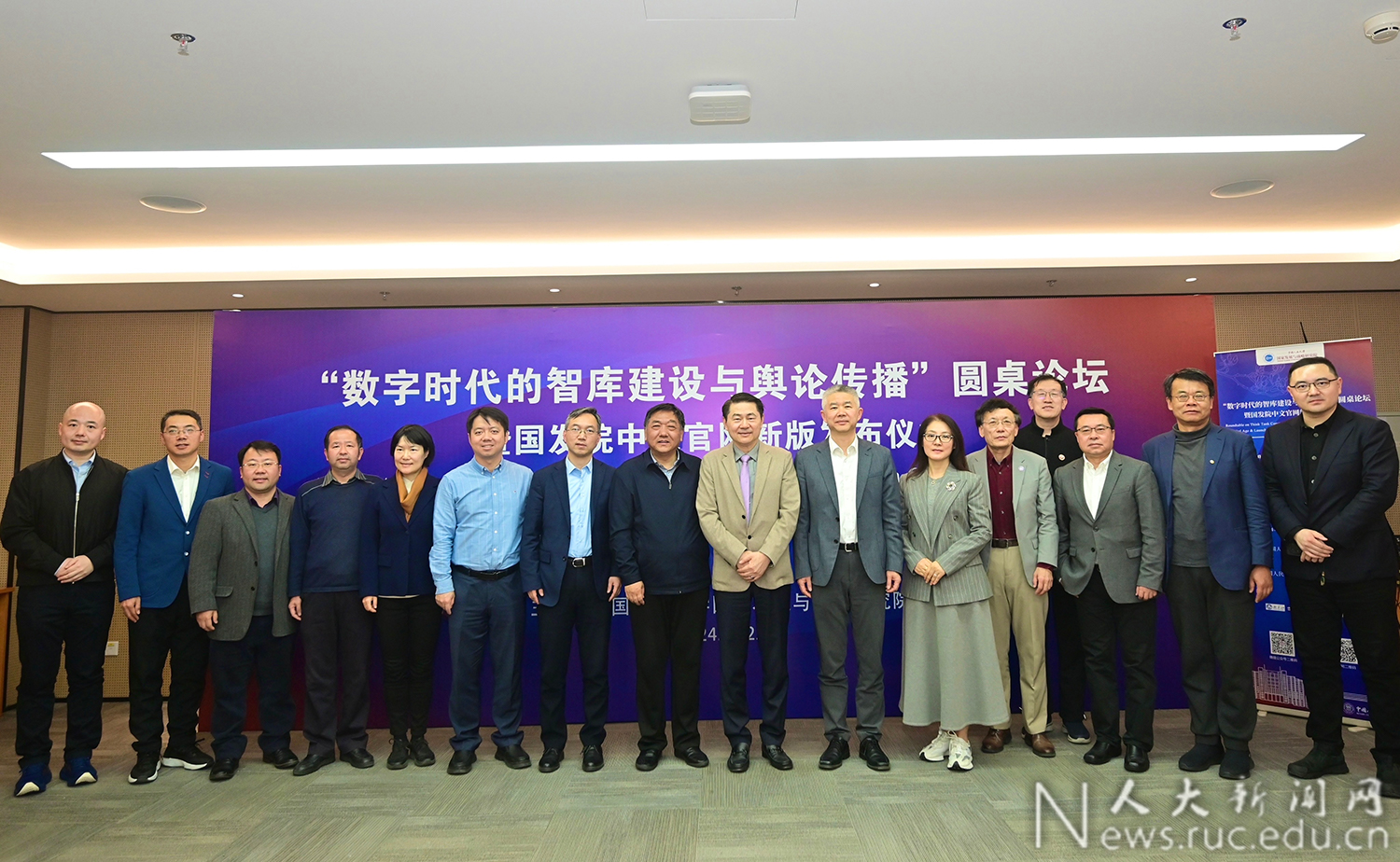On the afternoon of December 25, the Roundtable on Think Tank Construction and Public Opinion Communication in the Digital Age, along with the launch ceremony for the new Chinese official website of the National Academy of Development and Strategy (NADS), took place at Renmin University of China (RUC).

The event was hosted by the Academy and supported by Think Tank: Theory and Practice, Xinhua News Agency, China Daily, China.com.cn, GMW.cn, and ifeng.com.
Feng Shizheng, Vice President of RUC, attended
the opening ceremony and delivered a speech. Yu Hongjun, former Vice Minister
of the International Department of the CPC Central Committee, and Yue Yucheng, former
Vice Minister of Foreign Affairs, gave keynote addresses.
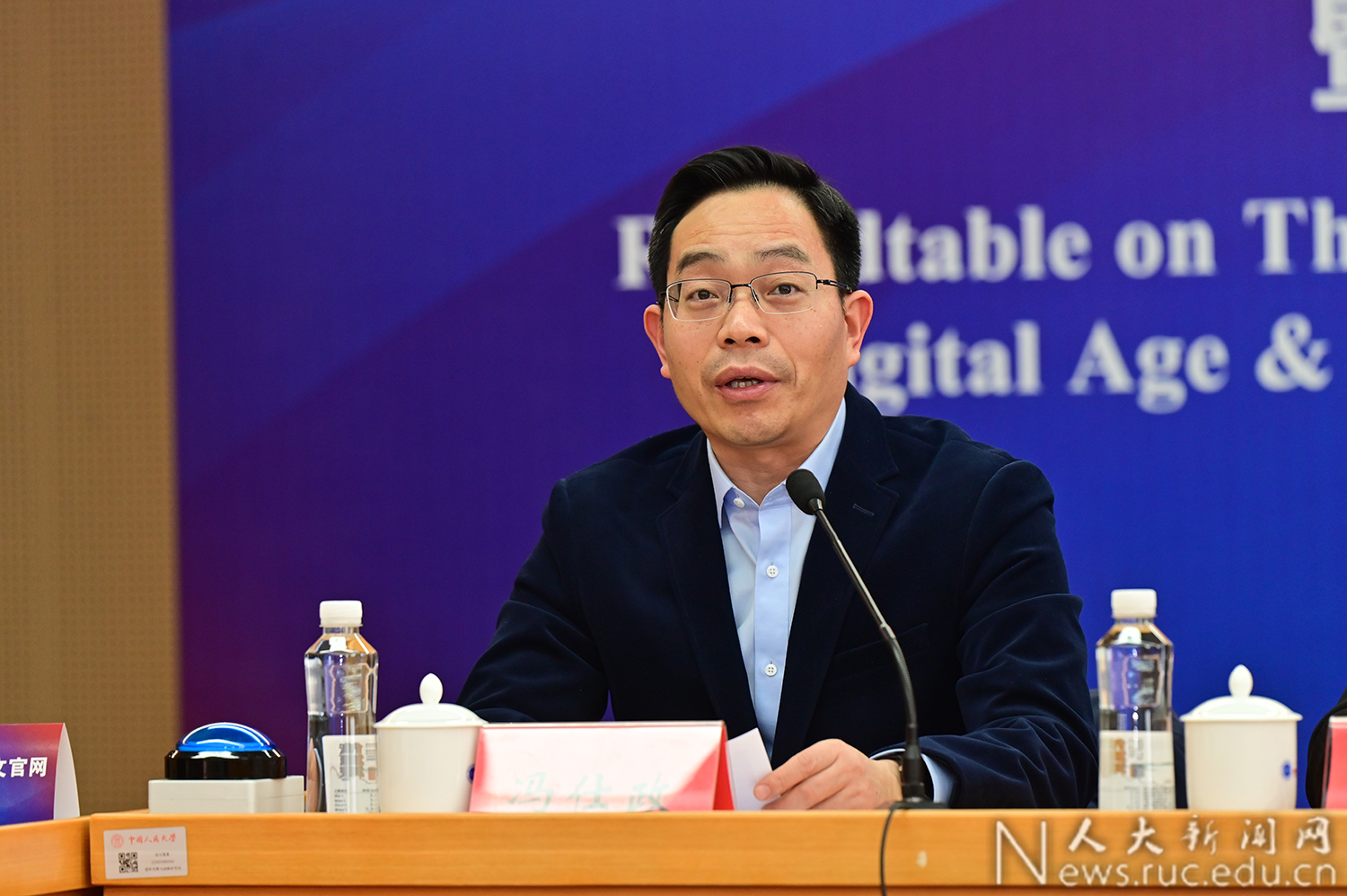
Feng Shizheng emphasized the role of
digital technologies, such as artificial intelligence, in accelerating global
modernization, transforming international communication, and shaping global
interactions. He highlighted the need for digitalization to empower China’s new
think tanks in shaping public opinion and global governance.
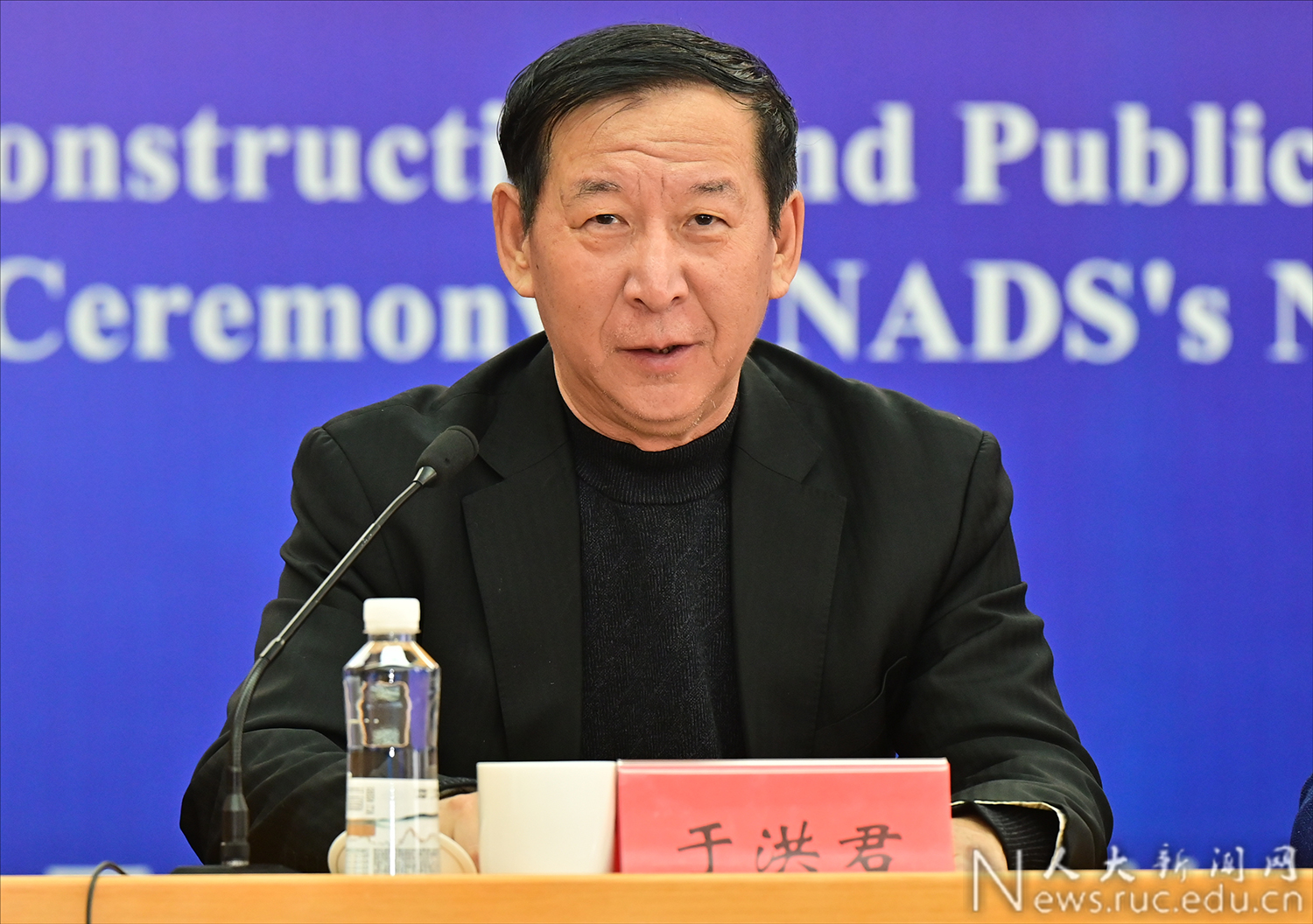
Yu Hongjun stressed that international
communication should aim to shape a positive image of China that emphasizes the
inclusive, open-minded, innovative, and pioneering spirit of the Chinese nation
and civilization. He noted the importance of establishing a discourse system
that combines Chinese characteristics with the trends of the times.
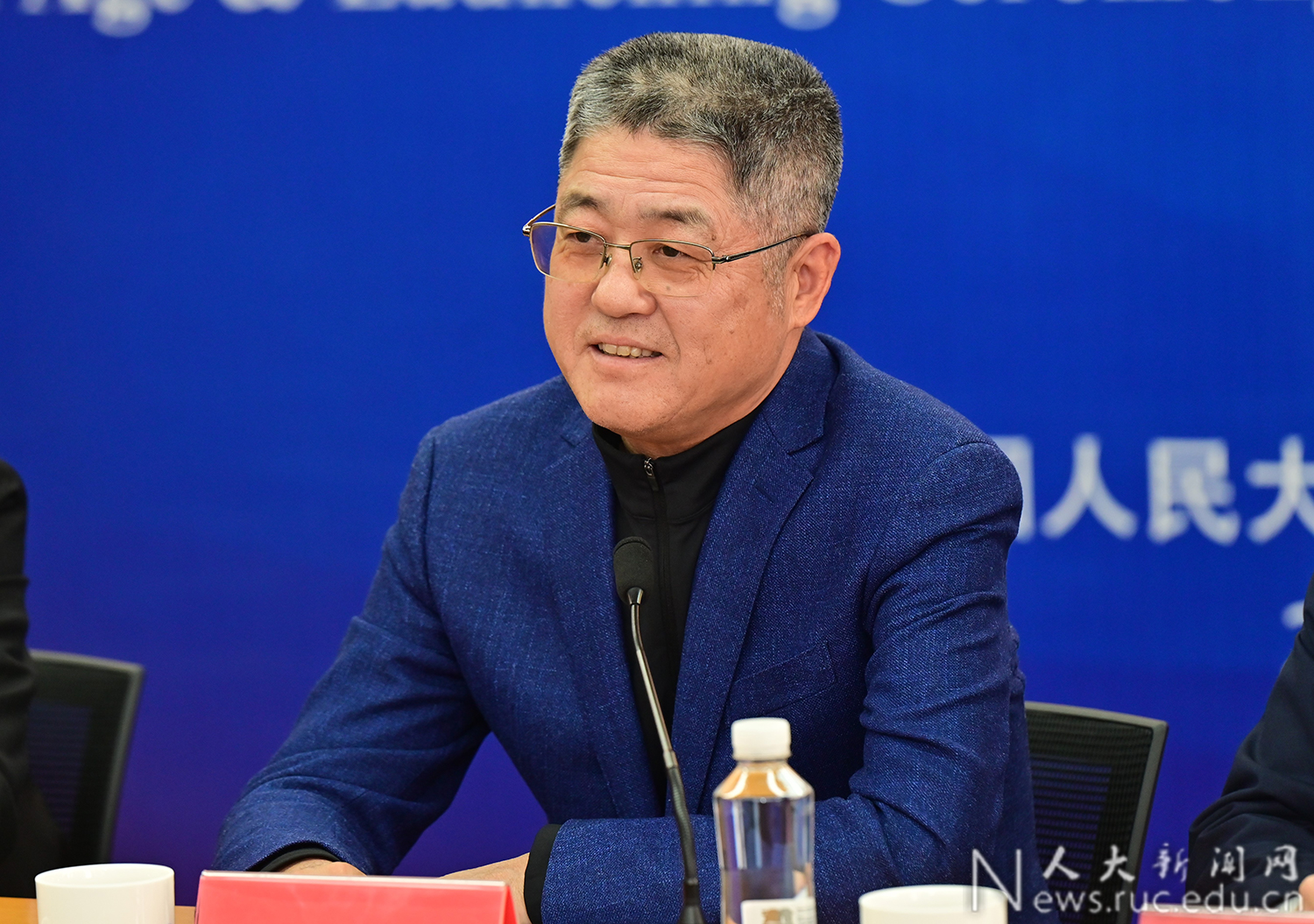
Yue Yucheng, in his keynote speech, pointed out that think tanks “should contribute more Chinese wisdom and solutions to improve global governance.” He emphasized the need to build a community with a shared future for mankind, promote the implementation of the three global initiatives, uphold UN-centered global multilateralism, expand the representation and voice of the Global South, push for digital global governance, and strengthen think tank building, particularly in global governance theory research and public opinion communication.
Following the speeches, Feng Shizheng announced the launch of the new Chinese official website for NADS.
The forum also featured two thematic seminars. The first focused on “Enhancing China’s Think Tanks’ Global Governance Capability and Effectiveness of Public Opinion Communication,” while the second centered on the “Role and Challenges of Diversified Think Tanks in Advancing the Process of Chinese Modernization.” Both seminars witnessed the participation of scholars from prestigious institutions and editors from mainstream media.
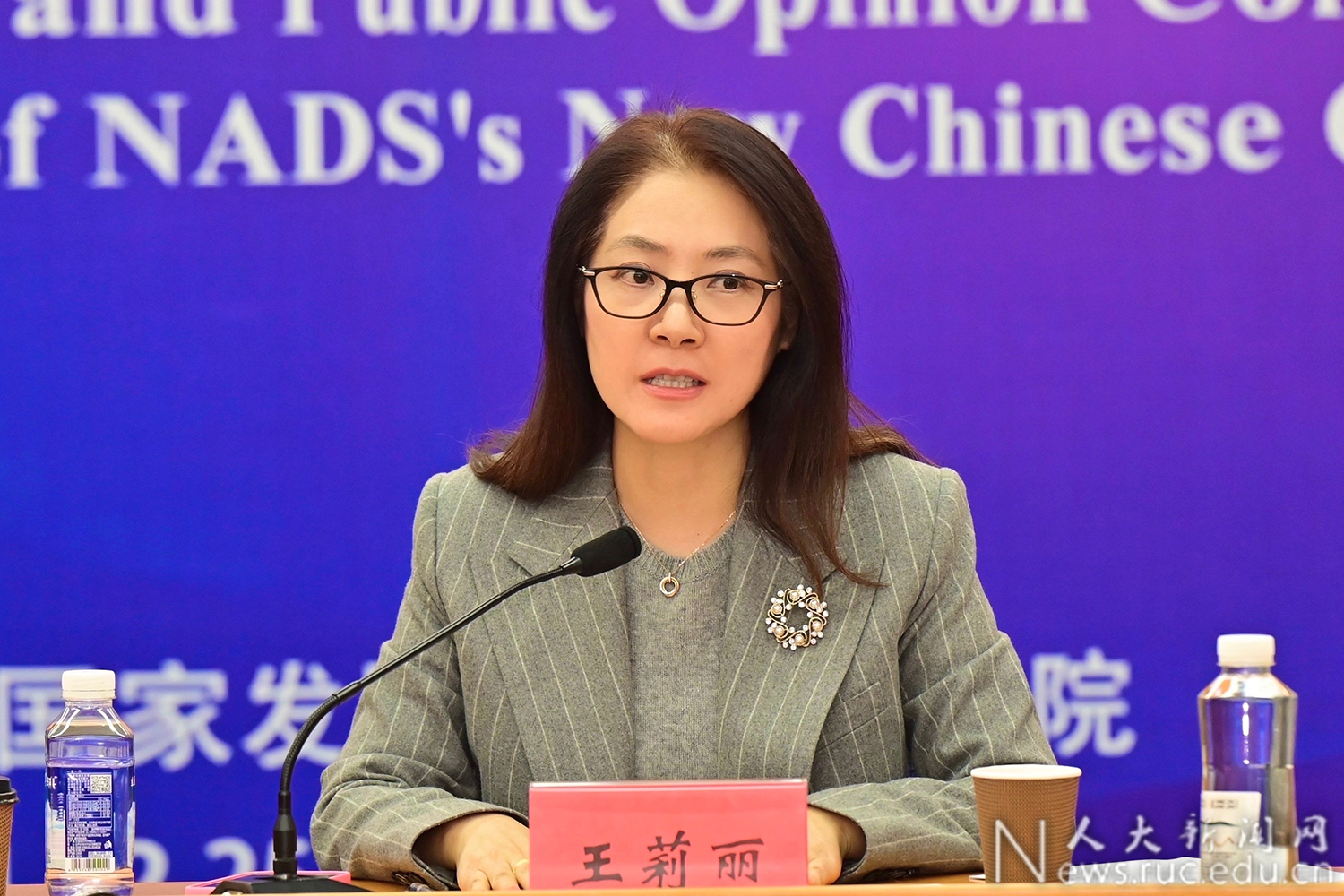
Wang Lili, Deputy Director of NADS, gave
the closing remarks, stating that after a decade of rapid development, Chinese
think tanks have shifted from quantity and scale to prioritizing intellectual
innovation and international influence. She emphasized the importance of focusing
on talent, deepen institutional reforms, activating intellectual potential,
strengthening thought-based public opinion communication, promote bilateral
communication and dialogue, and enhancing global governance and effectiveness
of public opinion communication.
